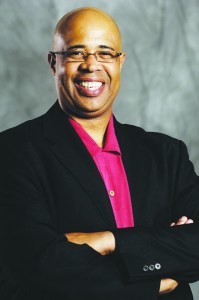The ‘one story’ of European colonialism informs his work
By Isaac Peterson
Contributing Writer
Minneapolis-native Gary Cunningham’s career has been long and varied, and his résumé reads like a “Who’s Who” of local government agencies and organizations. He has been involved with, at various times:
• NorthPoint Health and Wellness Center in North Minneapolis, where he was CEO and director of primary care;
• Hennepin County as director of planning and development;
• Hubert Humphrey Institute of Public Affairs, as associate collegiate program leader and research fellow;
• Minneapolis Public Schools as executive director of human resource services/acting operations administrator;
• Scott County as administrator and chief executive officer; and
• The African American Men Project as its director.
Before all of that, Cunningham was raised by his uncle Moe, a community activist who Cunningham credits with giving him the guidance that blossomed into a career of service. “There was an expectation that you would use

Photo courtesy of
Northwest Area Foundation
your skills, talents and abilities to give back and contribute to the well-being of the community, particularly African Americans and other people of color,” Cunningham explained about his uncle.
After graduating from Minneapolis’ Central High School, Cunningham became involved with the Community Gardens in South Minneapolis and then went on to run the Grand-Central Co-Op, a grocery store across the street from his old high school. Early on, he also did work concerning what he calls “the energy movement” and was involved with efforts concerning the accident at the Three Mile Island nuclear reactor.
From there, Cunningham said, “I was the co-chair of the Twin Cities Committee for the Liberation of Southern Africa; did a lot of work on the fire department consent decree; ended up working at the Minneapolis Civil Rights Department. There I did a report on people of color and women in construction occupations. All of those efforts were around what we need to do as a people and what does society need to do to ensure that we get access and a better outcome for our community.”
After his tenure with the Civil Rights Department, Cunningham enrolled at Harvard and from there did a stint with the City of Boston, serving as its director of compliance for women and minority business.
Somewhere along the way, Cunningham also had the opportunity to travel and study abroad — particularly in Australia and New Zealand — to study economic inequalities of the Maori and aborigines. He also enjoyed the privilege of being an observer to the World Conference on race and xenophobia in 2001 in Durban, South Africa.
Currently Cunningham is the vice president of programs for the Northwest Area Foundation. “The Foundation,” explained Gary, “has been responsible for helping to develop the African American Leadership Forum. Last year we put together a group of 45 residents of the Twin Cities of color and visited a grantee we’ve been supporting in Portland, Oregon — a coalition of communities of color, and we created relationships between the coalition that’s doing powerful work with Native American, African American, African, Latino, etc. people here.”
Cunningham’s work is informed and influenced by the perspective he gained while studying other cultures abroad. He explains that “When you’re in the United States, you get a glimpse of what’s going on. But when you go to another place, you see similar stories. It’s the same story; it’s one story.
“And that story is the story of colonialism. In studying the Maori and their exploitation and the aborigine people, it became very clear to me that there’s one story in the world: the subjugation of tribal people, primarily, by European powers, and that’s the story of the slave trade. That’s the story of the Roma people, the story of the Jewish people, the story of the Native American people.
“It’s one story, and we try to separate it out, but it’s all really one thing.”
Isaac Peterson welcomes reader responses to ipeterson @ spokesman-recorder.com.
Support Black local news
Help amplify Black voices by donating to the MSR. Your contribution enables critical coverage of issues affecting the community and empowers authentic storytelling.











